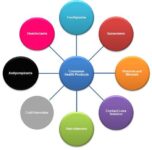
Which Is Not A Component Of Consumer Health

Which Is Not A Component Of Consumer Health? Complete Guide
Consumer health is a crucial facet of modern living, focusing on how individuals access, understand, and use health information and services to make informed decisions about their wellbeing. Whether you’re someone eager to improve personal wellness or a healthcare professional educating patients, knowing the key components of consumer health is essential. But, have you ever wondered which is not a component of consumer health? This article dives deep into the components that make up consumer health and highlights what does not belong among them.
Understanding Consumer Health: What Does It Really Mean?
Consumer health refers to the knowledge, behaviors, and decisions consumers employ regarding their health products and services. It empowers people to take control of their own health by understanding medical information, recognizing trustworthy sources, and practicing preventive care. Consumer health is a cornerstone of public health and personal wellness.
Generally, consumer health involves several components that collectively improve health outcomes:
- Health Education and Awareness
- Access to Healthcare Services
- Health Information Literacy
- Preventive Care and Healthy Lifestyle Practices
- Patient Rights and Consumer Protection
Key Components of Consumer Health
Let’s explore these components in detail to understand how they contribute to consumer health:
1. Health Education and Awareness
Providing accurate and easy-to-understand health information increases awareness and helps consumers make informed decisions about diet, exercise, medications, and disease prevention.
2. Access to Healthcare Services
Consumers need timely and affordable access to healthcare professionals, medical facilities, and treatments. This coverage ensures better management of illnesses and promotes health maintenance.
3. Health Information Literacy
This involves the ability to read, interpret, and critically analyze health data and communication, such as prescription instructions, medication labels, and medical reports.
4. Preventive Care and Healthy Lifestyle Practices
Adopting habits like regular exercise, balanced nutrition, stress management, and vaccinations reduces the risk of chronic diseases and improves quality of life.
5. Patient Rights and Consumer Protection
Ensuring consumers understand their rights regarding privacy, informed consent, and fair treatment strengthens trust and safeguards against medical errors and exploitation.
Which Is Not A Component of Consumer Health?
While the above components are integral to consumer health, some aspects are not considered part of consumer health. To clarify, here’s a comparative table that delineates true components versus non-components:
| Component | Belongs to Consumer Health? | Brief Explanation |
|---|---|---|
| Health Education and Awareness | Yes | Essential for making informed health decisions |
| Access to Healthcare Services | Yes | Key for treatment and ongoing care |
| Health Information Literacy | Yes | Ability to understand health data |
| Preventive Care and Healthy Lifestyle Practices | Yes | Crucial for disease prevention |
| Patient Rights and Consumer Protection | Yes | Ensures fairness and safety |
| Product Manufacturing Process | No | Related to production, not consumer awareness or health decisions |
| Hospital Administration and Staffing | No | Operational side of healthcare, not a consumer component |
| Pharmaceutical Drug Development Research | No | Scientific research, distinct from consumer-focused health knowledge |
So what is not a component of consumer health? The answer includes operational, production, and research-oriented areas such as the product manufacturing process, hospital admin functions, and pharmaceutical R&D. These are critical to the healthcare industry but do not fall under the direct control or knowledge domain of consumers.
Why It’s Important to Know Consumer Health Components
Understanding the difference helps consumers focus on what they can control and improve in their health journey. It enables better communication with healthcare providers and supports active participation in preventive care and treatment decisions.
Moreover, distinguishing non-components prevents confusion that could arise from overestimating consumer knowledge or involvement in complex healthcare operations.
Benefits of Focusing on True Consumer Health Components
- Empowerment: Consumers feel empowered when equipped with proper health education.
- Improved Health Outcomes: Preventive care and literacy reduce hospital visits and chronic conditions.
- Cost Savings: Avoiding unnecessary procedures and treatments leads to financial benefits.
- Enhanced Communication: Better understanding leads to clearer communication with healthcare providers.
- Increased Satisfaction: Knowing rights and protections enhances trust in healthcare systems.
Practical Tips to Improve Your Consumer Health
To harness the benefits of consumer health, consider the following practical strategies:
- Stay Informed: Use reputable websites like CDC, WHO, or government health portals.
- Ask Questions: Always clarify doubts with your healthcare provider.
- Read Medication Labels: Understand dosages and side effects carefully.
- Adopt Healthy Habits: Exercise regularly, eat a balanced diet, and get annual checkups.
- Understand Your Rights: Familiarize yourself with patient privacy and informed consent laws.
- Utilize Technology: Use apps and tools designed to track your health and medications securely.
Conclusion
Consumer health plays a vital role in shaping personal wellbeing and public health outcomes. Knowing which is not a component of consumer health – such as manufacturing processes, administrative tasks, and research activities – helps clarify the consumer’s role in their healthcare journey.
By focusing on genuine components like health education, healthcare access, health literacy, preventive care, and patient rights, individuals can make smarter, well-informed decisions to enhance their health and quality of life. Stay proactive, stay educated, and always be your best advocate in health matters!






